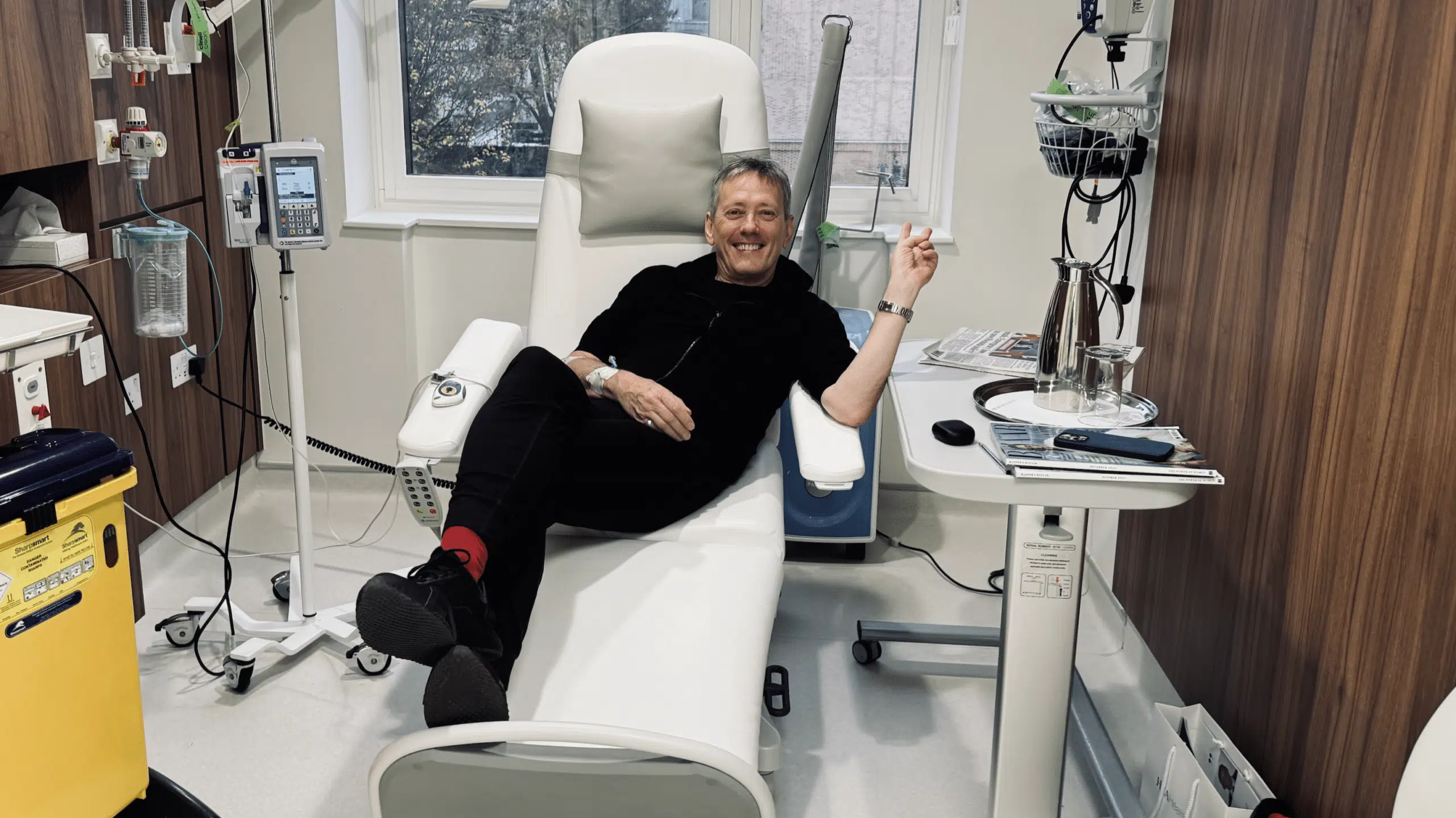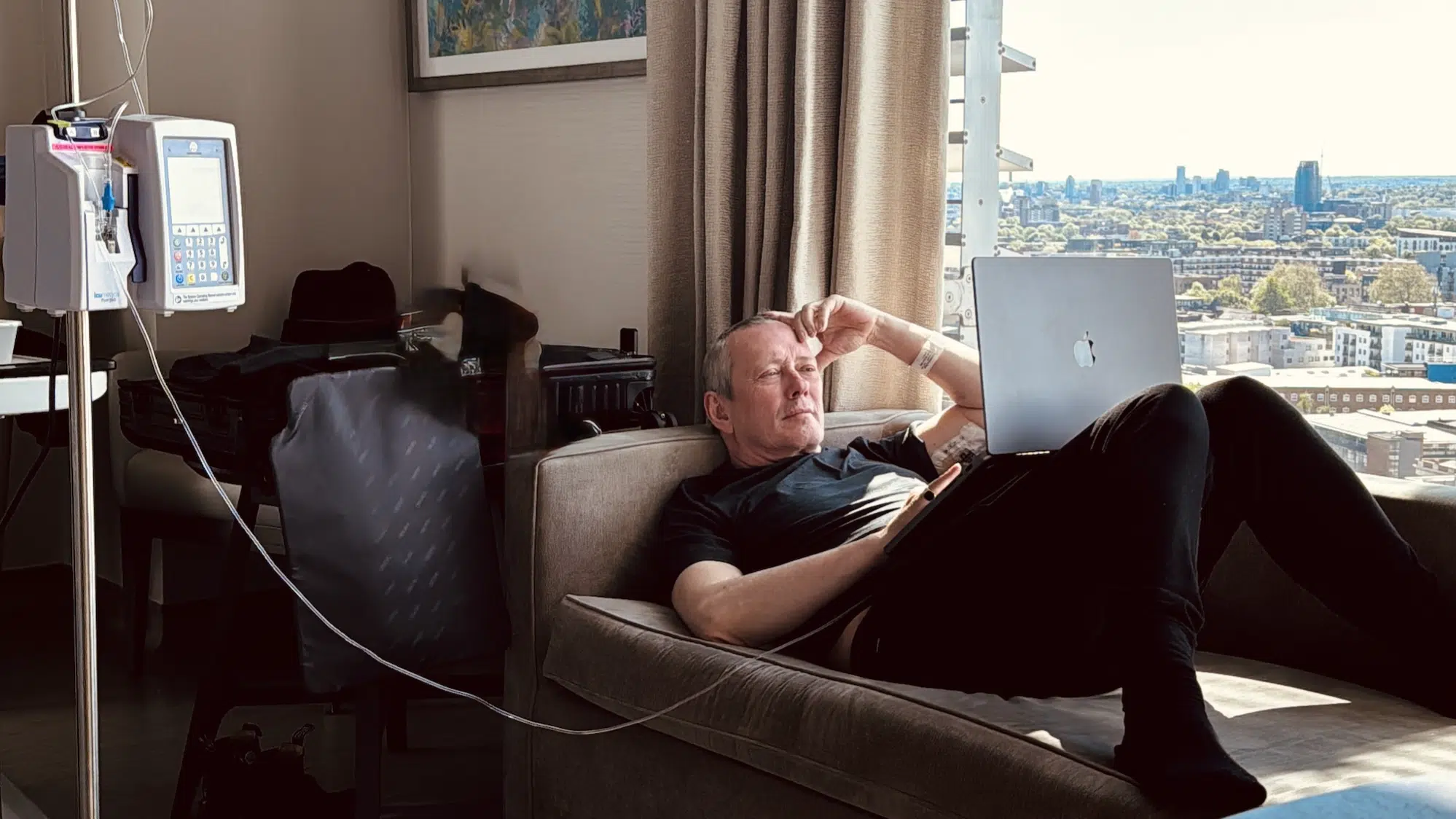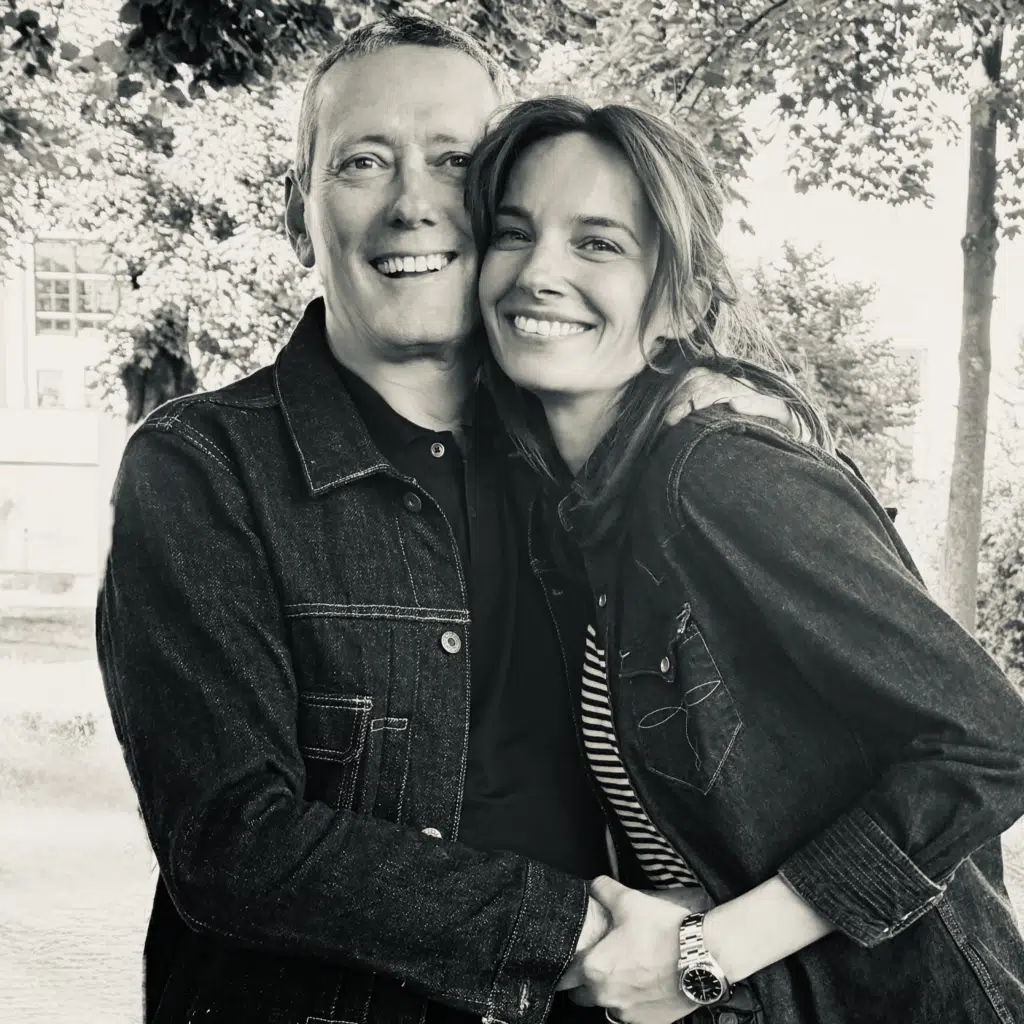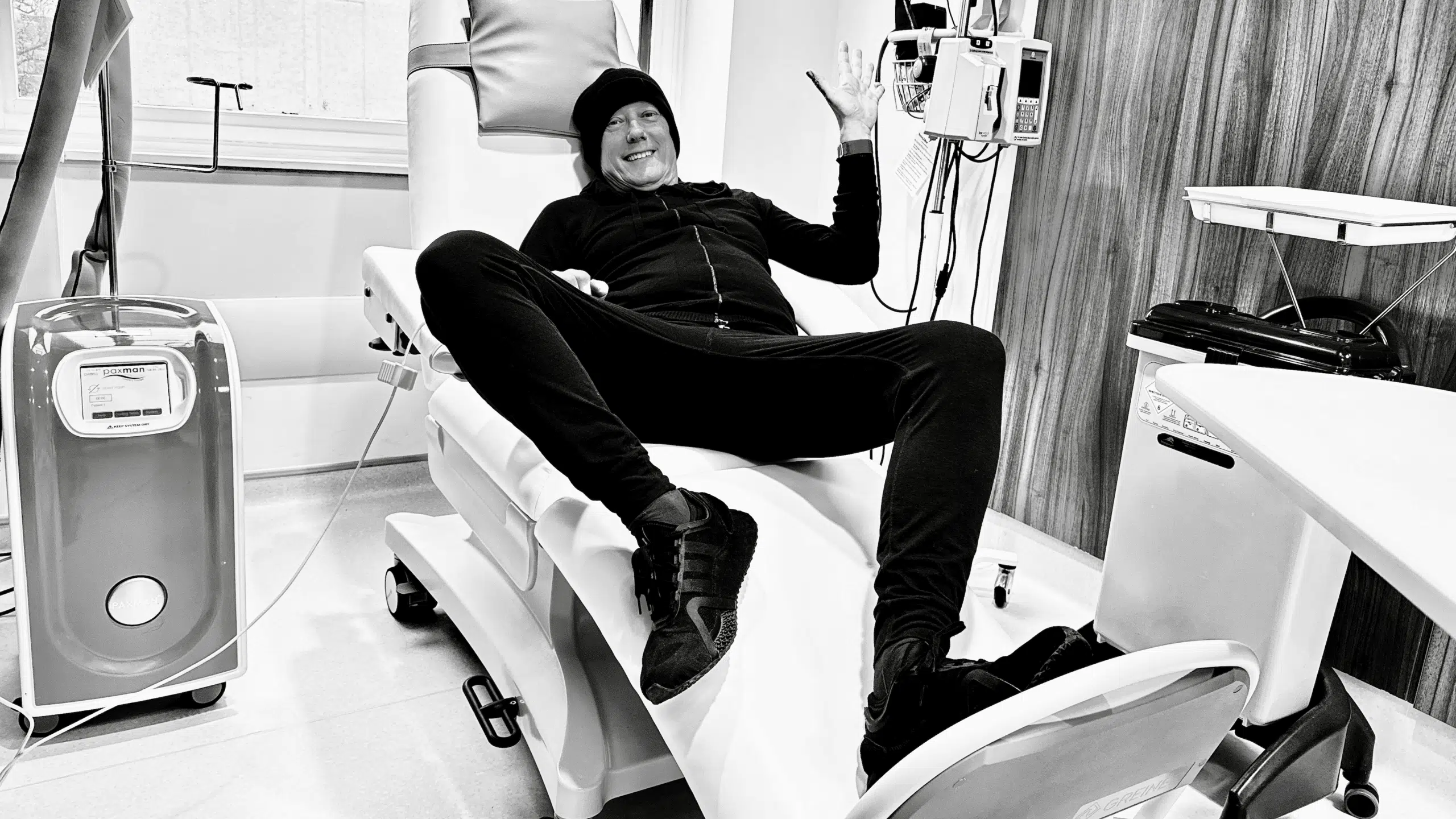Finding Hope and Healing Through Music

For Roger O’Donnell, longtime keyboardist of the legendary alternative rock band The Cure, music has always been about forging his own path.
“Our band has made a successful career out of turning left when everybody else turned right,” he said. “We’ve always done things our own way.”
A professional musician since 1976, having also played with The Psychedelic Furs and the Thompson Twins, O’Donnell joined The Cure in 1987. While on a jam-packed world tour with the band in 2022, he began noticing concerning symptoms, which he originally tried to rationalize away.
From Denial to Diagnosis
”I put off going to the doctor until I finished the tour,” he admits. “I was in denial because when I was growing up, cancer was always considered ‘the bogeyman’ or the mad axe murderer who knocks at the door.”

After the tour and before a planned trip to Italy, O’Donnell visited his General Practitioner (GP), who didn’t seem overly alarmed but suggested he get a scan. After returning from Italy and performing a show in Chicago,
O’Donnell’s instincts told him to investigate further. He scheduled an ultrasound at a local clinic. That ultrasound
appointment marked a turning point.
“The nurse said to me, ‘You want me to talk you through it, or should I wait until the end?’” O’Donnell remembers. “I was like, ‘Sure, no problem — I think we both know what it is’ — still rock solid in my denial.”
But when the nurse fell silent during the procedure and quickly left the room to contact O’Donell’s GP, reality began to sink in.
“At that moment, I entered what I can only describe as a different zone … where you’re not really sure what’s going on. You’re certainly not inhabiting your body anymore,” he said.
The process moved swiftly from there. Within ten days of his initial ultrasound, O’Donnell had undergone the necessary tests and received his official lymphoma diagnosis. His medical knowledge, which he gained from supporting an ex-partner through her journey with Hodgkin lymphoma years before, helped him better navigate the road ahead. Treatment began in November 2022, and O’Donnell wasted no time in reading up on his disease.
“I was very proactive with my research, reviewing every research paper I could get my hands on,” O’Donnell said. “I’m pretty thorough, to the point that if the plumber comes and fixes something in my house, I want to know what he does. If there’s something wrong with my car, I want to know exactly what they’re doing. I don’t want them to say, ‘Okay, we fixed it fine’ — I want the details.”
He worked closely with his medical team to determine the best treatment approach, even presenting them with research papers he’d come across, suggesting modified treatment protocols that might reduce long-term effects while maintaining efficacy. Even so, the 11-month chemotherapy treatment regimen proved challenging.
“After the first treatment, and come the morning of the second one, I didn’t want to go,” he admitted.
During his third treatment, he found himself questioning whether he could continue.

Coming to Terms with a New Normal
O’Donnell maintained a positive attitude throughout treatment, though he acknowledges it wasn’t always easy.
“I just wanted to get through the treatment. I wanted to get it done. I wanted it over with,” he said.
His partner, Mimi, stood by him through every step of what he calls “the nightmare of the last year,” providing crucial support. The medical team and caregivers he worked closely with also became like family.
“I can’t stress enough how supportive my partner and my medical team were,” O’Donnell said. “I’ve always been the one that makes everyone laugh, so it was very difficult for me to take on the role of being the patient instead of the person who cares.”
O’Donnell completed his treatment in July 2023, but the emotional journey continues. He recently started therapy to process what he went through, recognizing signs of PTSD from the experience.
“I’m still coming to terms with the fact that I went through it,” he explained. “I’m not scared of what’s to come … it’s just trying to work out how I got through it in the first place.”
Just months after completing treatment, O’Donnell was back on stage with The Cure for a worldwide broadcast celebrating the band’s latest album release.
“I was standing on stage playing and thinking, ‘At this time last year, I was in treatment… I had no hair, and I felt like the worst I’ve ever felt in my entire life,’” he recalls. “It was at that moment that I realized that I could use this experience to help others going through something similar.”
“Not only does the Foundation encourage and fund important lymphoma research, but it offers support for people going through the disease as a patient or caregiver.”

Using His Voice Both Onstage and Off
After O’Donnell posted about his lymphoma diagnosis on Twitter (now X), the Lymphoma Research Foundation’s Board of Directors Chair, Steven Eichberg reached out to O’Donnell’s agent to offer support. O’Donnell liked what he learned about the organization.
“Not only does the Foundation encourage and fund important lymphoma research, but it offers support for people going through the disease as a patient or caregiver,” he notes. “It’s a very holistic approach.”
To those newly diagnosed with lymphoma, O’Donnell offers heartfelt encouragement:
“You’re not alone. There are a lot of people going through it at the same time, and there are a lot of people working toward making you better,” he said. “Nothing is ever as scary or as horrible as you think it is. Your imagination is your worst enemy … nothing was ever as bad as I thought it was going to be.”
Music continues to be a source of healing. During a recent performance of “Plainsong,” a beloved classic of The Cure, O’Donnell experienced a profound realization about just how far he’d come in the last year. The song, which he describes as “a big, powerful string orchestral sound,” helped him fully grasp that he had made it through his treatment to the other side.
Looking ahead, O’Donnell remains focused on his music while gradually accepting how his experience has shaped him. “I don’t want people to think of me differently,” he said, though he acknowledges that accepting and processing his journey is part of the process of moving forward.
“The part that sticks with me is that throughout my treatment, my amazing caregivers and I actually had fun together, and I still go back and see the chemo nurses from time to time,” he said. “They genuinely love helping people, and we just laugh and laugh. Some of my care team have even said they want to attend future Cure concerts.”
Today, O’Donnell splits his time between London and Devon, England. As The Cure prepares for future tours and performances, O’Donnell continues to embrace creating and performing music. His journey with lymphoma has added another layer to his story, one that resonates with hope and resilience.
“You’re not alone. There are a lot of people going through it at the same time, and there are a lot of people working toward making you better.”

Read More Articles from Pulse
Pulse is a publication of the Lymphoma Research Foundation, providing the latest updates on the Foundation and its focus on lymphoma and chronic lymphocytic leukemia (CLL) research, awareness, and education

